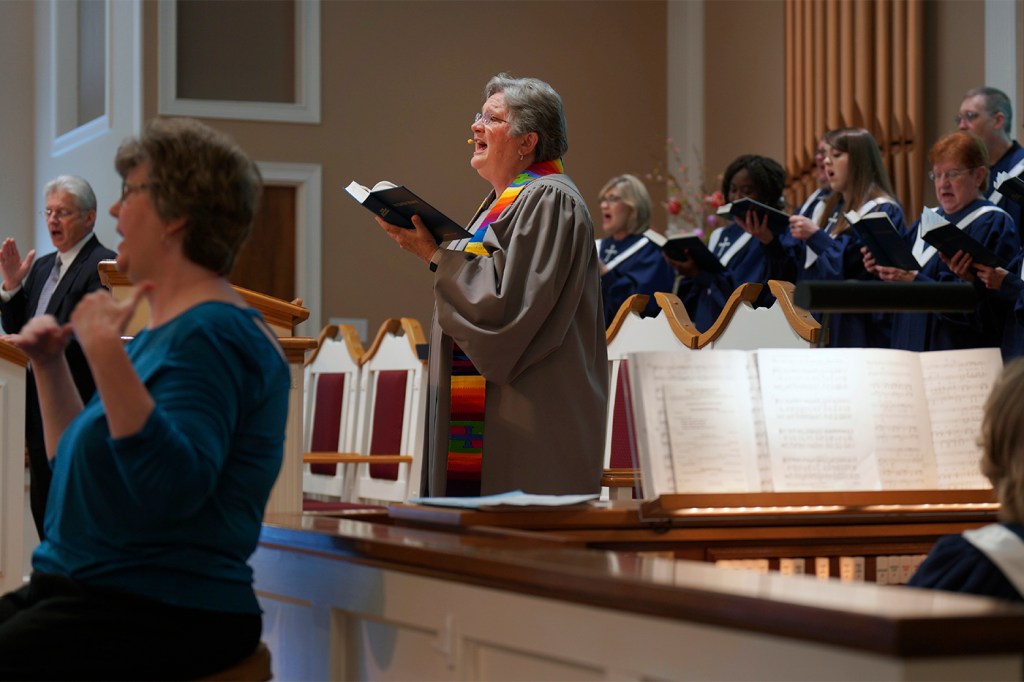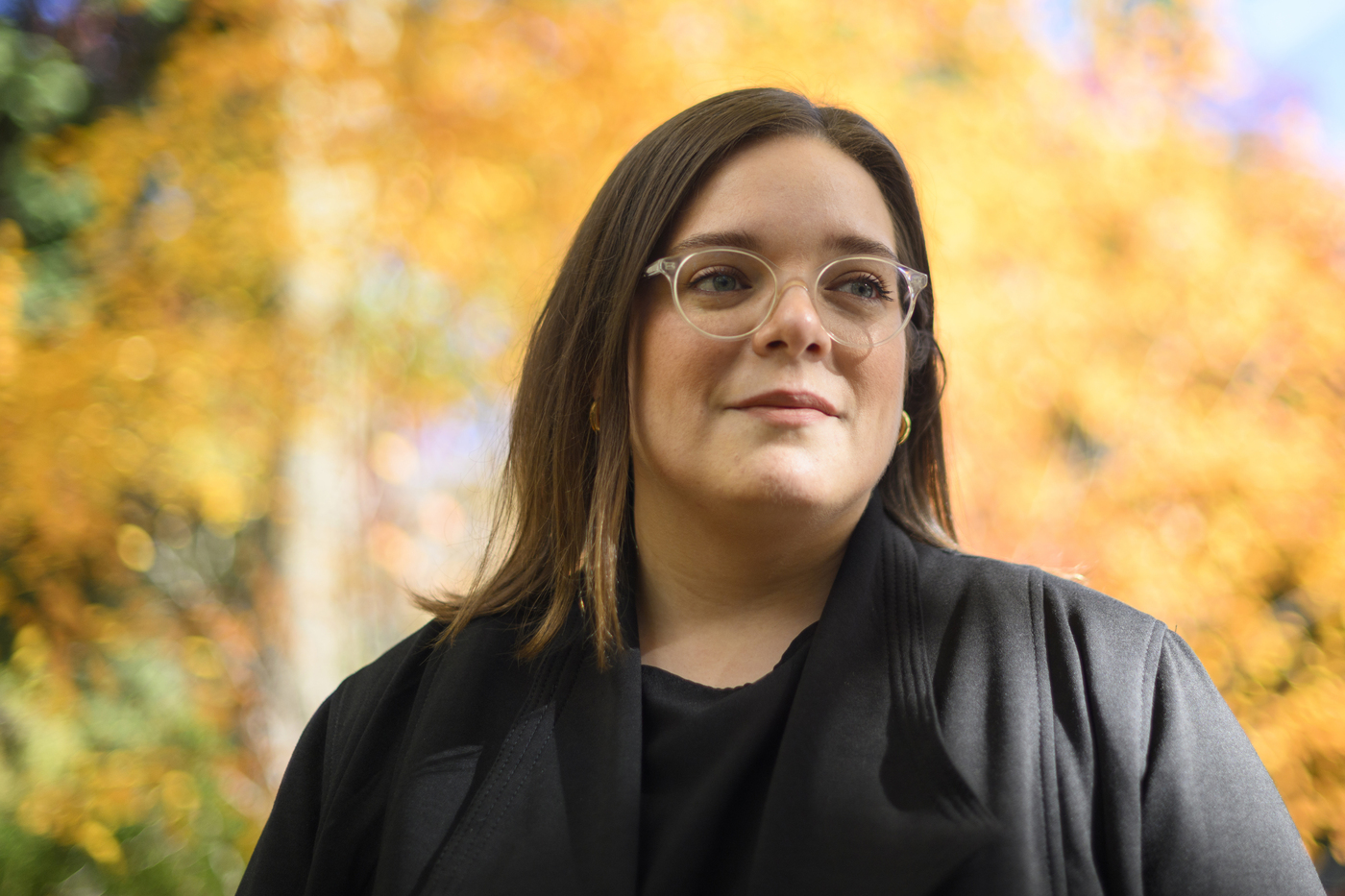The Southern Baptist Convention is trying to prevent women from being pastors. What does that mean for religion in America?

The Southern Baptist Convention’s recent decision to expel several churches with women pastors and consider an amendment to prohibit women from being pastors at all is a bellwether moment for American evangelism.
The SBC, the largest Protestant group in the country, will make a final decision on the amendment next year. But the SBC’s deliberation on the role women can, or can’t, have in SBC-affiliated churches is indicative of a more general swing toward far-right thinking in American Christianity, says Sarah Riccardi-Swartz, an assistant professor of religion and anthropology at Northeastern University.
For women involved in conservative Christian communities, “the situation is bleak and only getting worse,” she says.

“Part of this decision to further the exclusion of women from SBC leadership is growing religious fundamentalism within the institution that focuses on inflexible gender roles, purity culture and patriarchal hierarchy,” Riccardi-Swartz says. “This fundamentalism seems to be built around a fear that women’s rights will lead to rights for other marginalized Christians, including LBGTQ+ Christians.”
The SBC did not immediately respond to a request for comment.
The SBC’s recent denial of female leadership is by no means new. The organization has long been conservative in its ideals, Riccardi-Swartz says, but its more recent shift toward ultraconservative and fundamentalist leadership and thinking represents a much broader shift to the far-right for American evangelicals.
Like any organization, the SBC and its membership is not a monolith and not all members necessarily hold the views of the SBC. Saddleback Church, a California megachurch, made a more recent shift toward including women in leadership positions. And the Rev. Linda Barnes Popham has served as pastor for Fern Creek Baptist Church outside of Louisville, Kentucky, for three decades. Both churches were expelled by wide margin votes during the SBC’s most recent convention.
“This signals a decline for Southern Baptists,” Barnes Popham told the New York Times. “I believe they are going to discourage so many women from ministry that women and their families will find other places to serve. There are such talented women out there, who obviously God has called.”
The SBC can’t directly control what churches do––they are independent––but it can arbitrate the terms that churches must follow as members of the SBC. Churches that it deems are “not in friendly cooperation” can be expelled by a majority of SBC members.
Riccardi-Swartz says the SBC further shifting toward the far-right and “patriarchal division of spiritual labor and leadership” is a more recent “expression of male fear and privilege.” It’s representative of a fear that as women and people in the LGBTQ+ community become more visible in culture at large and in the religious roles, “men will lose positions of spiritual power and domination.”
But that fear––and the decisions that stem from it––are built on a shaky bedrock of scripture interpretations that exclude the historic role women have played in Christianity, she says.
“In order to control who has authority, SBC male leaders use particular interpretations of scripture that are not aligned with ancient Christendom, where we see exalted female leaders, including St. Phoebe the Deaconess, who was mentioned in the Christian scriptures,” Riccardi-Swartz says. “Women were a vital part of early Christianity, but sadly much of their witness and deeds were often obscured from historical record.”
Riccardi-Swartz says the Catholic Church, Orthodox Church and Mormon Church have all used theological and scriptural claims to exclude women from leadership positions. But the SBC’s recent decision fits within a more recent trend of conservative Christian communities doubling down on the patriarchy. Look no further than the “tradwife” movement spreading on social media.
“Some of this is kind of amusing because some of the verses they read out to us, if you just read the verse before, it says women should not have braids or adorn themselves with jewelry,” Barnes Popham told CNN after the SBC’s decision. “I didn’t see too many women there without jewelry at the Southern Baptist Convention. How they differentiate between those two verses in the same chapter two verses apart, I’ll never understand that.”
Conservative Christianity’s embrace of traditional gender roles creates “a challenge for women who have careers, who feel called to religious ministry or who do not adhere to the idea that they were created only to be a helpmate to their male spouses,” Riccardi-Swartz says. But it also creates a challenge for organizations like the SBC.
Part of this decision to further the exclusion of women from [Southern Baptist Convention] leadership is growing religious fundamentalism within the institution that focuses on inflexible gender roles, purity culture and patriarchal hierarchy.
Sarah Riccardi-Swartz, assistant professor of religion and anthropology
The organization’s recent decisions come at the time that the SBC is experiencing historic declines in membership. Between 2021 and 2022, the SBC lost almost 500,000 members and more than 400 churches, the largest single-year decline in 100 years.
Part of the decline is likely due to the significant changes that churches had to make during the COVID-19 pandemic. But a sexual abuse scandal, loss of older members and the SBC’s ongoing embrace of culture war politics hasn’t helped.
“In terms of voluntary departure, there has been a consistent trend of church communities leaving the SBC for a variety of theological and social reasons, both from the political right and left,” Riccardi-Swartz says. “[It] suggests that the SBC is not tuned in to the needs of its own members.”
For women in the SBC and other conservative Christian communities, there is no easy answer. Riccardi-Swartz says there will likely be some women who are happy the SBC is prohibiting women from becoming pastors; others will vehemently oppose the decision.
“Some might leave; some might stay,” she says. “Ultimately, this decision means that patriarchalism coded as theology will continue to be a guiding force in the SBC for the foreseeable future.”
Cody Mello-Klein is a Northeastern Global News reporter. Email him at c.mello-klein@northeastern.edu. Follow him on Twitter @Proelectioneer.






